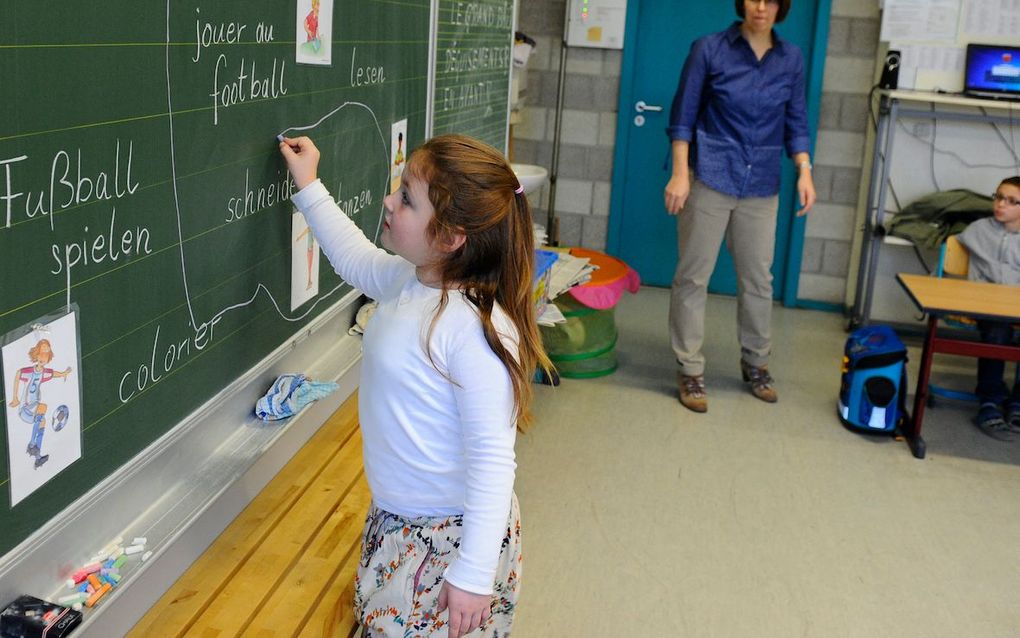Weekly column: Germans might speak neutral language, but do not understand gender

Getting German right is a heavy job. Does gender-neutral language make it simpler? Photo AFP, Jean-Christophe Verhaegen
Christian Life
For some months, the debate about gender-neutral language and its worldview has been playing an increasing role in Germany. To understand its origin, one should know the peculiarities of the German language.
Not without reason, German is considered a difficult language to learn for people whose native language only knows one gender form, for example, English. On the other hand, German has three genders: masculine, feminine, and neuter. So, each noun has a corresponding article that has one of three forms: “der”, “die” or “das” (der Mann, die Frau, das Kind) respectively in German. English has just one: the. This is one reason why learning the German vocabulary is so difficult, mainly because the assignment of the article is not always logical.

Traditionally, most nouns in German were in so-called “generic masculinum”. For instance, “viele Piloten” (many pilots) included female pilots. Because a lady who is a pilot is called “Pilotin”. But of course, in speeches, “Dear ladies and gentlemen” were addressed. In church, “Dear brothers and sisters.” Those who wanted to be polite or correct have also spoken of “Lehrerinnen und Lehrer” –thus addressing both sexes– for years.
Showing more than 2 options
But that is not enough for those who demand “gender-appropriate language.” They require an asterisk or a space (referred to as “gender gap”, with a German Anglicism) in every noun: “Pilot*innen” or “Pilot_innen”. These artificial inclusions in the so-called “Gendersprache” are meant to show that there are many more possibilities than male and female. Facebook, for example, offers 58 genders. Many speakers in the public media have already been practising this since last year – despite the rejection by a (slight) majority of the population.
For me, the gender asterisk and gender gap show that these activists are not concerned with women’s equality in language. This has long been taken for granted in my generation, except in the Bible (so-called gender-neutral Bible translations play practically no role in Germany, even if they caused headlines).
No, it is about abolishing the dualism of male and female as described in Genesis. Because if a man is not created male or female, but many forms of sex or gender is a choice, then God is factually overcome and abolished. And likewise, the family structure given by Him from man, woman and children born to them is removed.
Part of this strategy of overruling traditional family values is that the new majority in the German parliament wants to make it easy for young people over the age of 14 to change their gender (“trans”) officially and legalise diverse types of relationships to adopt or foster children. These are ideas and strategies of “overcoming bourgeois society”, known in Germany under the term of the “Frankfurt School” at the time of the 1968 revolt and connected to the name Jürgen Habermas.
Language creates new families
With the change of language through gender asterisks and gender gaps, the simplification of the official gender assignment and the legalisation of new “family” forms, this has now reached a new point in Germany. Shockingly, this comes when the two major churches in Germany (the Protestants and the Catholics) have become irrelevant in the social discourse due to sexual abuse scandals and corona – they are also completely silent on this crucial issue.
And lastly: unlike English, German did not know the term “gender” and the distinction between male and female or masculinity and femininity within an individual’s gender identity. In German, “sex” and “gender” are both referred to as “Geschlecht”. Therefore, as far as I can see: “gender” might still be incomprehensible to most Germans.
Related Articles






